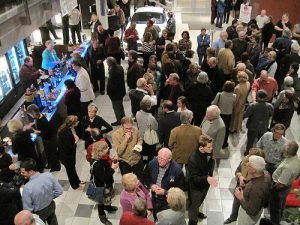From last Monday evening through Sunday afternoon, my week has been of a piece. That usually doesn’t happen: Most of the time, Monday bears little relationship to Tuesday and even less relationship to Sunday.
But if upbringings have ‘themes,’ as Calvin Trillin once put it so beautifully in Messages from My Father, this past week had one, too, and that was the power of language.

On Monday evening, the Polish Embassy was the scene of a dazzling presentation by Barbara Kirshenblatt-Gimblett on the creation of a museum in Warsaw that will chronicle and interpret the thousand-year-old history of Polish Jews. The images that she brought to bear were splendid, but what really packed a wallop was the passionate and resolute prose that accompanied them.
Much the same could be said of Barbara Kirshenblatt-Gimblett’s campus talk on Tuesday evening, where the subject at hand was the fate of objects in an increasingly virtual world. Once again, her artful words and lively cadences compelled the audience to sit up and pay close attention.
And then, on Sunday afternoon, at Politics & Prose, the beloved author and GW professor of creative writing Faye Moskowitz read selections from her book, And The Bridge is Love, which enjoys the good fortune of being reprinted some twenty years after its first release.
All of us in the standing-room-only audience hung on each and every one of Faye Moskowitz’s finely wrought sentences, finding in them the kind of wisdom, humor, affirmation and solace that only words can bring.
A good week, then, for prose and those who keep it afloat.


